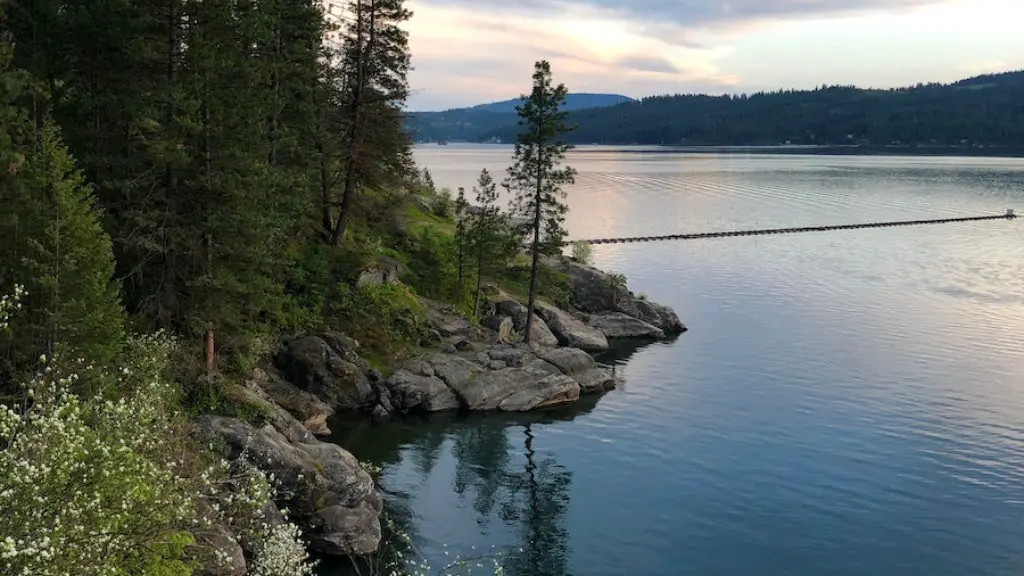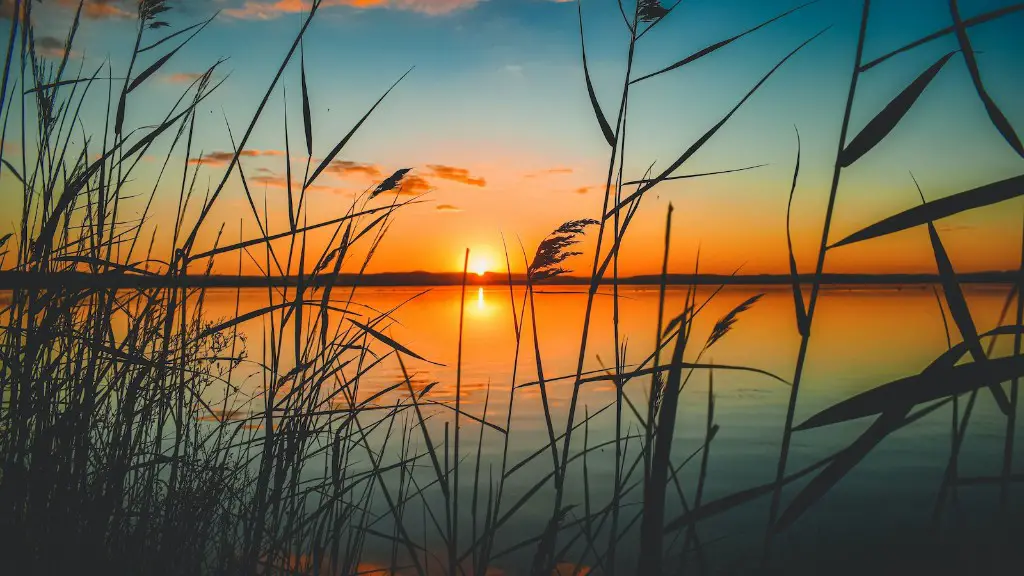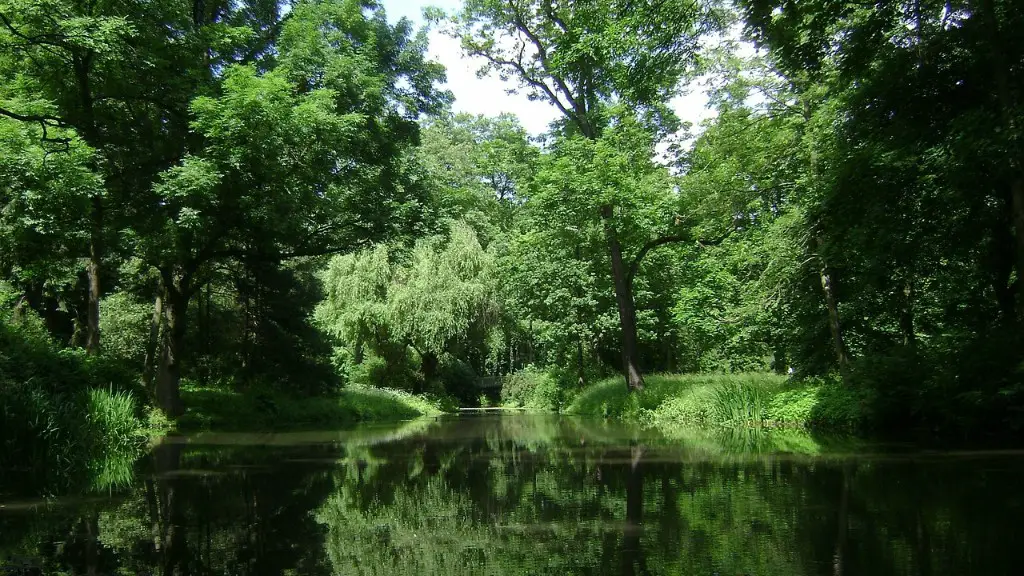Cultural Significance Of Lake Titicaca
Lake Titicaca is one of the most important geological and cultural landmarks in South America. It is a large high altitude lake that spans both Bolivia and Peru situated some 12,500 feet (3,810 meters) above sea level, making it the highest navigable lake in the world. The lake holds a special place in Peruvian and Bolivian culture, as it is the birthplace of their ancient civilizations, and the lake’s crystal blue waters are said to hold hidden powers. As such, the lake is of great religious, spiritual and cultural significance, and continues to be a very important part of both Peruvian and Bolivian cultures today.
Historical Significance Of Lake Titicaca
Lake Titicaca is of immense historical importance to Peru and Bolivia. It is believed to be the birthplace of the Inca civilization, with archaeological findings tracing back to 3500BC. It is also believed to be the birthplace of the Aymara, who dominated the area for millennia until the rise of the Inca empire in the 15th century. During this period the lake was an important trade centre, with the Inca’s roads leading to the lake. The lake itself is surrounded by numerous ruins of the Inca, pre-Inca, and other indigenous cultures.
In recent years, the lake has experienced a surge in tourism, with tourists flocking to the lake to experience its pristine waters, enjoy the scenery and learn about its rich cultural history. Tourists can explore incredible Inca sites, such as the famous Puma Punku ruins, and enjoy boat excursions through the lake’s largely unspoiled waters.
Environmental Significance Of Lake Titicaca
The lake is not only a cultural and historical site, but is also of great environmental importance. It is home to a wide variety of flora and fauna, and is the principal source of fresh water for Bolivia and Peru. 14 rivers flow into the lake from the high altiplano, providing it with a rich source of fresh water.
It is estimated the lake covers about 39,000 square kilometers and is incredibly deep, reaching depths of at least 230 meters. In addition, it has no natural outlet, meaning that any pollution that enters the lake is likely to stay in the lake for some time, meaning its purity must be protected.
Economic Significance Of Lake Titicaca
The lake is also of great economic importance to Bolivia and Peru. Its waters are used for fishing and agriculture, providing a valuable source of food and income to those living in the area. It is also a popular tourist destination, bringing in millions of dollars of revenue each year to Peru and Bolivia. In addition, the lake is the source of vital minerals and minerals and hydroelectric power due to its great depth.
Political Significance Of Lake Titicaca
Lake Titicaca is of immense political significance for Bolivia and Peru and is an area of great political contention. Bolivia and Peru have long argued about their rights to the lake, with both countries claiming ownership of the lake, and have even fought a brief war over the lake in 1938, known as the ‘Guano War’.
Furthermore, the lake has been considered a potential source of fresh water for both countries, with Peru proposing a plan to divert water from the lake to its arid desert which lies to the South. However, Bolivia is strongly opposed to this plan and has called on the international community to prevent Peru from taking water from the lake.
Cultural Impact Of Lake Titicaca
The cultural impact of Lake Titicaca has been immense and can be felt throughout Peru and Bolivia. The lake has long been a source of pride for the peoples of both Peru and Bolivia, and is seen as a symbol of unity and identity. The lake is also linked with traditional music, dance and folklore, and is seen by many as a sacred place.
In addition, the lake has played a key role in the spiritual life of the indigenous peoples of the area. Many consider the lake to be a source of spiritual enlightenment, with its crystal clear waters said to carry the wisdom of the gods and ancient spirits that inhabit the lake.
Conservation Efforts
In recent years, steps have been taken to protect the lake and conserve its invaluable natural resources. A number of conservation measures have been implemented, including the creation of a nature reserve, the closure of certain areas to fishing, and the promotion of sustainable tourism and eco-tourism. In addition, a number of environmental education programs have been established in order to raise awareness about the importance of the lake and its fragile ecosystem.
Impact of Climate Change on Lake Titicaca
Climate change has had a major impact on the lake’s environment and its biodiversity. Rising sea levels have caused the lake’s water levels to rise, adversely affecting its unique ecosystems, such as the floating islands of Uros. In addition, changes in the temperature of the lake’s waters has caused a decrease in the number of fish species and impacted the lake’s native fish populations.
Given the importance of the lake to the region, it is vital that steps are taken to mitigate the effects of climate change on Lake Titicaca. In order to protect this invaluable resource, governments must work together to implement effective conservation measures and reduce the threat of climate change.
Conclusion Of Lake Titicaca
In conclusion, Lake Titicaca is of immense importance to the people of Peru and Bolivia, with its rich cultural, historical and environmental significance. It is a unique and beautiful part of the world and one that must be protected and preserved for future generations. With the increasing threat of climate change and growing pressure on the lake’s resources, it is vital that steps are taken to protect this increasingly fragile ecosystem.


